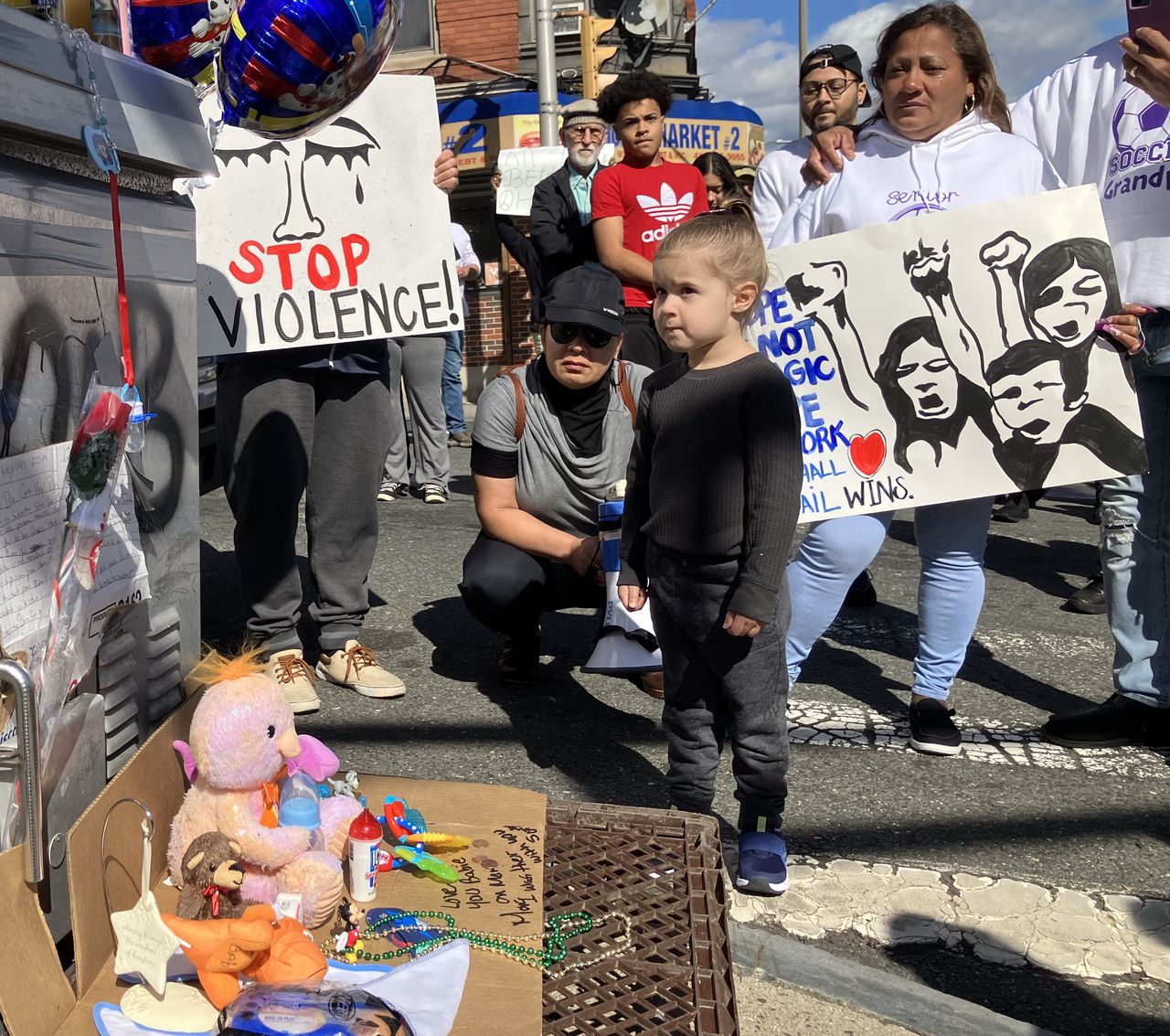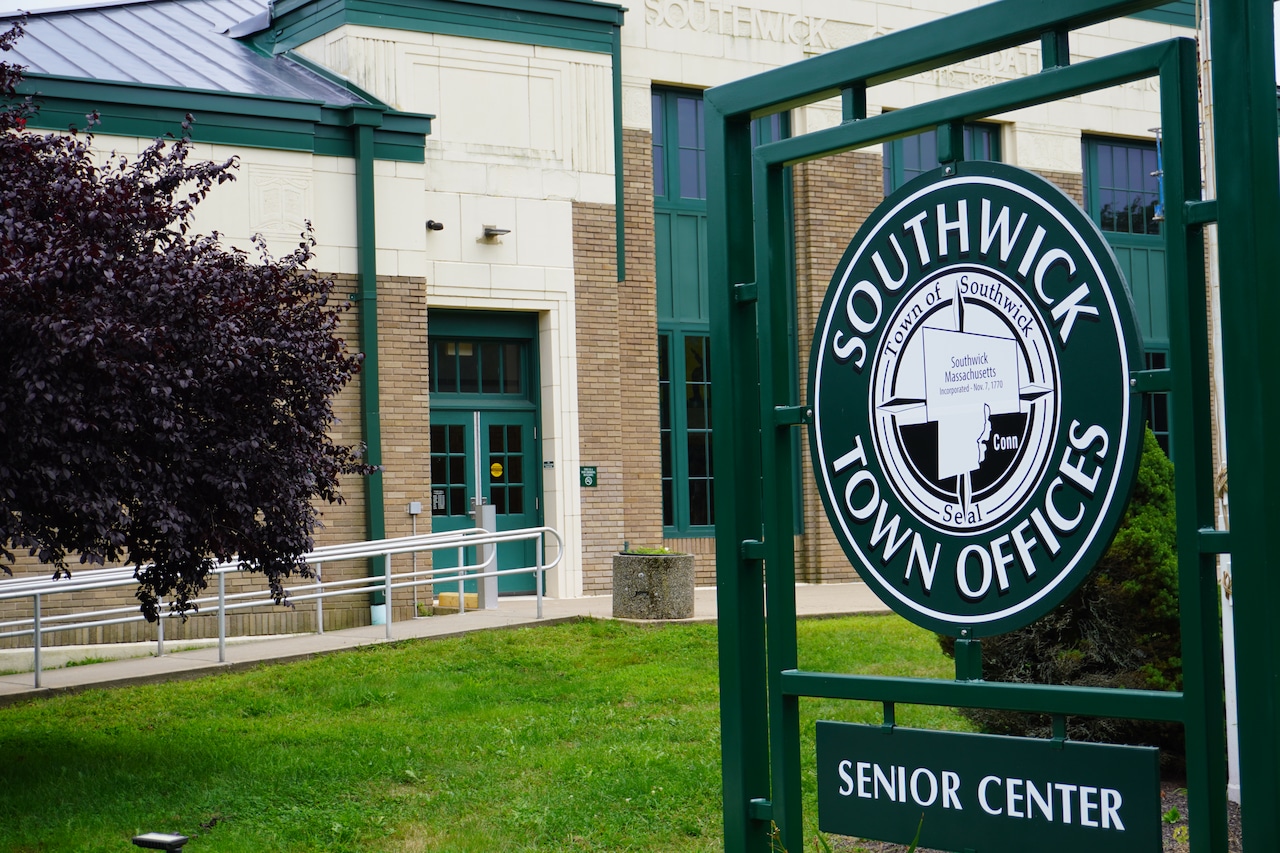
“We need to talk with our kids. We need to listen and understand them,” shouted a woman in desperation at a recent march to call attention to violence in Holyoke, after a woman was shot, and her baby died from the wound.
Like other cities throughout our country, Holyoke is stuck in a cycle of violence and suffering that law enforcement has not, and cannot, change.
Some city leaders, though, continue to lead us into the same pitfalls of increased surveillance and policing. It’s as though they refuse to look at our history.
Last Sunday, more than 100 people walked a 1-mile route that ended at Sargeant and Maple streets, where the mother-to-be, Selena Santana, and her child, Ezekiel, were shot, killing the infant boy after doctors delivered and tried to save him.
This horrific tragedy is part of a long train of violence in Holyoke, which triggers screams of using our police to “fight back” against crime. I understand the anger, but such responses continually fail. It’s as if this is all we can say in the face of such violence.
I remember how former Police Chief Anthony Scott was loved for his no-nonsense, zero-tolerance approach to crime (and minor misdemeanors) in Holyoke.
He had people arrested and ticketed for everything, from sitting on a milk crate on the sidewalk to playing a loud car radio in the streets to selling narcotics.
He had cameras looking down from utility poles and had cops “sweeping” low-income areas, arresting everyone in sight. The suburban sections of Holyoke loved it — and made their love known on online forums.
And guess what? None of it worked. The cameras on the telephone poles are broken, and our city is still plagued by the same violence we suffered in the early 2000s, when Scott was chief.
At the time, I was a reporter covering crime in the city. While our police officers did their sweeps, I remember reporting on a teenager who was shot and killed off Whiting Farms Road. I remember a young drug dealer, who was using his money to help support his mom and siblings, being executed with a gunshot to the head off High Street. I remember sitting in the living room of the family of a mother who was shot and killed when she tried to break up a fight between her son and three teenagers.
I remember talking with family members, watching them hunch over in guttural cries or seeing their glassed-over eyes from trauma that will never go away.
I remember looking at blood stains on the sidewalks, where a living person once walked.
I remember the protests then. I remember the leaders, yelling about the “criminals in our streets” and “fighting back.” I remember watching none of it work.
I watch my sons, a 12-year-old and a 9-year-old, playing with their friends, and I am afraid to think which ones of their friends will end up with guns in their hands on city streets.
The statistics show that some of them will end up becoming the criminals we now curse.
Instead of cursing them, we need to reach out to them. We need to help them. It is the only way.
Those criminals on our streets were our children. They went through our schools. They attended the same classes as my sons.
Two years ago, we had a chance to build two small middle schools in our city. At the time, school officials said these are the years — from sixth to eighth grade — that they lose our children, and these kids turn to the streets.
Those schools, they said, would create an infrastructure where we could reach and help some of the most vulnerable children in our city.
But we as a city refused to pay for those schools. Many of our city leaders refused to advocate for those schools. Some of our city leaders railed against building new schools, spreading lies about the effect they’d have on our city. Those schools will never be built.
We, as a city, refuse to chip away at the poverty that inflames violence in the streets.
We, as a city, have allowed poverty to spread and infect our children.
We are responsible for losing our children to crime.
We are responsible for the deaths in our streets, even the death of a baby yet to be born.
Until we, as a city, admit our role in continuing this violence and start to make real, radical changes, the bloodshed will not end.
Calling for more police in our streets is not a solution. The real solution involves all of us.
Patrick O’Connor is a writer and public high school teacher who lives in Holyoke.





